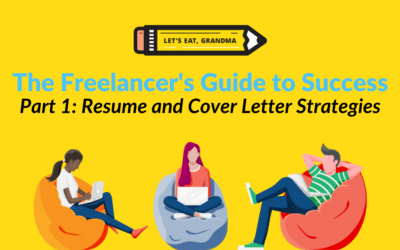The great cover letter debate. Have we outgrown them? They’re annoying to write. We have LinkedIn now. We’re sending our resumes via email to potential employers. Do we really need to write a cover letter too? Yes.
How important are cover letters? If you start talking about cover letters with friends over coffee, you are likely to get a range of opinions. Some will say that cover letters are dead, and others will argue that a cover letter is a crucial component of the job serch.
Hiring managers are likely to say that it depends on the cover letter. A generic one isn’t going to get a ton of attention, while a cover letter tailored to the desired job title probably will be scanned for standout information.
So, who do you believe? Let’s go to the source.

Photo by Surface on Unsplash
Do employers want to see cover letters?
Most employers say that cover letters are an important part of any job seeker’s toolkit. They still want to see them attached to an application, even if they don’t always get a thorough reading. Plus, a cover letter gives you a
chance to explain your skills in a more robust way than any other medium.
In fact, a recent survey of recruiters and hiring managers suggests that your job-hunting success hinges on including one.
It revealed that a whopping 87% of employers read cover letters. Even more startling, 65% of employers said that cover letters influenced who they interviewed and hired. These stats show that cover letters are still valuable to
your overall job search strategy.
But your hang up might be in the long, bulky cover letters of yesteryear. That makes sense, since cover letters hit their hey-day in the 1990s. Back then, employers expected to read a formal letter listing every detail from a
candidate’s career and educational background. It turns out this type of cover letter is a real snooze-fest and provides little value to your application.
Nowadays, cover letters have taken on a more modern format, and they are written with busy hiring managers in mind. The survey mentioned earlier also found that half of employers spend less than one minute with their eyes on
your cover letter. That’s a short amount of time in the scheme of your job search, but it is still plenty of time to make a great first impression.
It’s important to mention that many employers still require cover letters. If the job posting says to include it, you need to submit one to avoid being disqualified.
If it’s not mentioned in the job posting, including a cover letter is still a great way to set yourself apart and can only help you – as long as it’s well-written and proofread! Just remember that short and sweet is the goal.
What is a cover letter for?

Photo by Green Chameleon on Unsplash
Let’s start with the basics. A cover letter is a one-page document meant to complement your resume and explain relevant key achievements. And, the main purpose of a cover letter is to convince a recruiter or hiring
manager to send your resume higher up the chain.
A well-written and strategic cover letter gives you the chance to elaborate on your soft skills, too. It’s often challenging to show your cross-functional communication skills, for instance, in your resume. But your cover letter is the perfect place to give an example of how you solved a problem across silos by working with several different team leaders. This is the kind of storytelling that helps a hiring manager decide between you and other qualified
candidates.
Remember, everything included in a job application serves as marketing collateral for your personal brand. A strong cover letter shows a potential employer your approach, philosophy, and skillset within the core functions of the
open position. It also demonstrates that your brand aligns with the company’s mission and values.
A cover letter is important because it gives you the chance to breathe life into your application. You are more than a long list of bullet points on a resume, and a cover letter gives you the chance to add a human element to
your application.
With that in mind, here are the top benefits of including a cover letter:
You can tell your career story.
Resumes tell the trajectory of your career in bullet point form, but a cover letter can explain your career through a few short success stories. Of course, the resume and cover letter should work in tandem, but sharing a complete anecdote has more staying power than a bullet point alone.
Think of a few of your proudest career moments over the past 10 years. Do any of them relate to the job posting? Do they show that you are one of the most qualified or interesting candidates out there? Do they communicate your passion for a job well done? Those are the types of stories that stand out, and they are definitely worth sharing in your cover letter.
You can show your personality.
Resumes follow a strict formula, so it is difficult to squeeze any personality into your bullet points. However, a cover letter is more flexible with tone, style, and overall format. You want to keep it professional, but you do have a little freedom in creating the content.
For example, you can choose to write in a more conversational tone if you are applying for a position at a marketing firm, or you can decide that a formal tone is the best option if you are applying for a role at a financial services company. You also have control over word choice and sentence structure. All of these elements play a part in communicating your unique personality.
You can highlight specific skills.

Photo by Jason Goodman on Unsplash
Are you skilled in finding root-cause issues and then developing a data-driven solution? Give a specific example with metrics, if possible. Are you skilled in creating digital marketing campaigns? Provide a real-life example and
explain how it impacted the overall business. Get the idea? You can prove that you are the best person for the job by showing that your past experience is a great match for their future success.
This is also an opportunity to expand on your soft skills like leadership, teamwork, and time management. You just need to explain them in detail with a hard example to make your application stand out from the crowd.
You can clarify career gaps.
If you took a break from working for any reason, it can be scary to explain your situation to a potential employer. That feeling is completely normal, and it’s important to take a proactive approach. A cover letter is the perfect place to set the record straight.
Let’s say that you stepped back from your career to care for small children at home. You can simply write near the end of your cover letter that you are excited to rejoin the workforce after fulfilling family obligations. You don’t need to go into detail, and they probably won’t ask about it. Employers know that you have a life with responsibilities outside of work, and they appreciate your willingness to address any glaring gaps with honesty.
You can explain a career change.
If you are on the cusp of a professional pivot, you are not alone. Half of Americans who quit their jobs in 2021 made a career change. Your cover letter is prime real estate that can be used to highlight transferable skills and take out the guesswork for hiring managers. Be sure to make clear connections from your past experiences to your new field – like showing how your prior position required a lot of problem-solving, which also happens to align with your desired job posting.
This is also a great reason to discuss any relevant volunteer work in your cover letter. Not only does it give a potential employer a look at your interests, it also shows that you can learn new skills and apply them across industries.
Do I need a new cover letter for each application?
Most applicants create one master cover letter document that can be tweaked slightly for different positions. Customization is key, though, because it increases the value of your cover letter. You can start tailoring your cover letters by matching the company name, mission, or job title to the specific job posting. If you are a senior-level professional or executive, you can take it a step further by directly communicating your unique value proposition for a particular company.
What’s in a good cover letter?
A good cover letter demonstrates that you are the right candidate for the job–but the best cover letters center on stories that show off your personality, professionalism, and specific skill set. It’s in the cover letter that you can address any potential red flags, like relocation, job gaps, or career changes. Then, to wrap it up, provide your contact information and ask for the interview. All set to start writing? Check out our cover letter outline!
Ready for more job search help?
Sign up for a free Senior Writer Resume Critique to see what’s holding you back from landing interviews. One of our top professional resume writers will give you personalized feedback on the top 3 items you can improve based on our expert practices!




